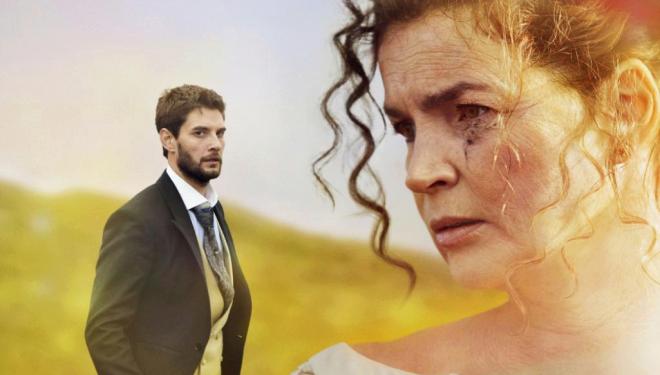
Likewise, every episode of Jack Thorne’s BBC adaptation treads that ponderous territory, without severing these concepts to gratify a mainstream audience (like the 2007 film version did).

Mrs Coulter (Ruth Wilson) upturns Jordan College, seeking its heretical manuscripts
In
episode three, Mrs Coulter (Ruth Wilson) and the religious Magisterium ambush
Jordan College following Lyra’s escape. Coulter emphasises: ‘Find me something
that is heretical or illegal,’ like they’re one and the same — free thought
attacked and suppressed in favour of the established religious dogma.
Members of the said Magisterium walk and talk like devoted monks mixed with suited G-Men, making them ideal as evil henchmen. The true scale of their evil, happening in the dark and perilous north, hasn’t yet been revealed; but judging by Coulter's increased venom, it won't be lollipops and sunshine for her Gobbled children. Wilson continues to perform like a terrifying, primal creature — to the extent that her horrible golden monkey daemon acts more human than she does.
The theme of the importance of truth and free-thinking flows through the veins of this episode; it’s effectively the lifeblood of the whole series. At the start, Lyra (Dafne Keen) wakes up in the back of a van — caught like a netted fish — before being rescued by Tony Costa (Daniel Frogson), who takes her to his fellow Gyptians.

Lyra (Dafne Keen) escapes with the Gyptians
In their nearby boat-homes, she learns more about the alethiometer,
the golden compass that The Master (Clarke Peters) claimed ‘tells the truth’. The
truth is a valuable commodity in this world of theocratic control and, though
conceived before the eponymous fake news era, can't help but connect with the
present state of the world.
As even more revelations befall Lyra, she has some genuinely touching discussions with Farder Coram (James Cosmo) about the nature of daemons. With wonderful, poetic confidence, Thorne’s dialogue delves into the psychological and metaphysical upshots involved in growing up. For a series named after a line in John Milton’s epic poem Paradise Lost, this only feels appropriate.
More than that, His Dark Materials is poetry and philosophy wrapped in the thrills and tears of an immersive fantasy story; an epic in its own right. This show gets better week by week, and this critic never wants it to end.
His Dark Materials continues Sundays at 8pm on BBC One
| What | His Dark Materials, BBC One, episode 3 review |
| When |
17 Nov 19 – 17 Nov 20, 8:00 PM – 9:00 PM |
| Price | £n/a |
| Website | Click here for more information |




